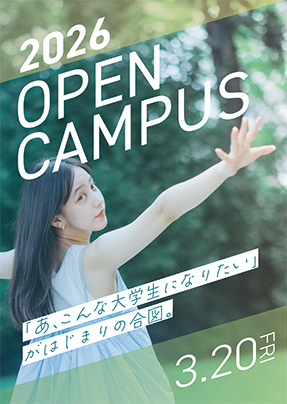Soka University Graduate School of Science and Engineering Valentin Keith and Associate Professor Hagiwara Receive the Japan Robotics Society Award
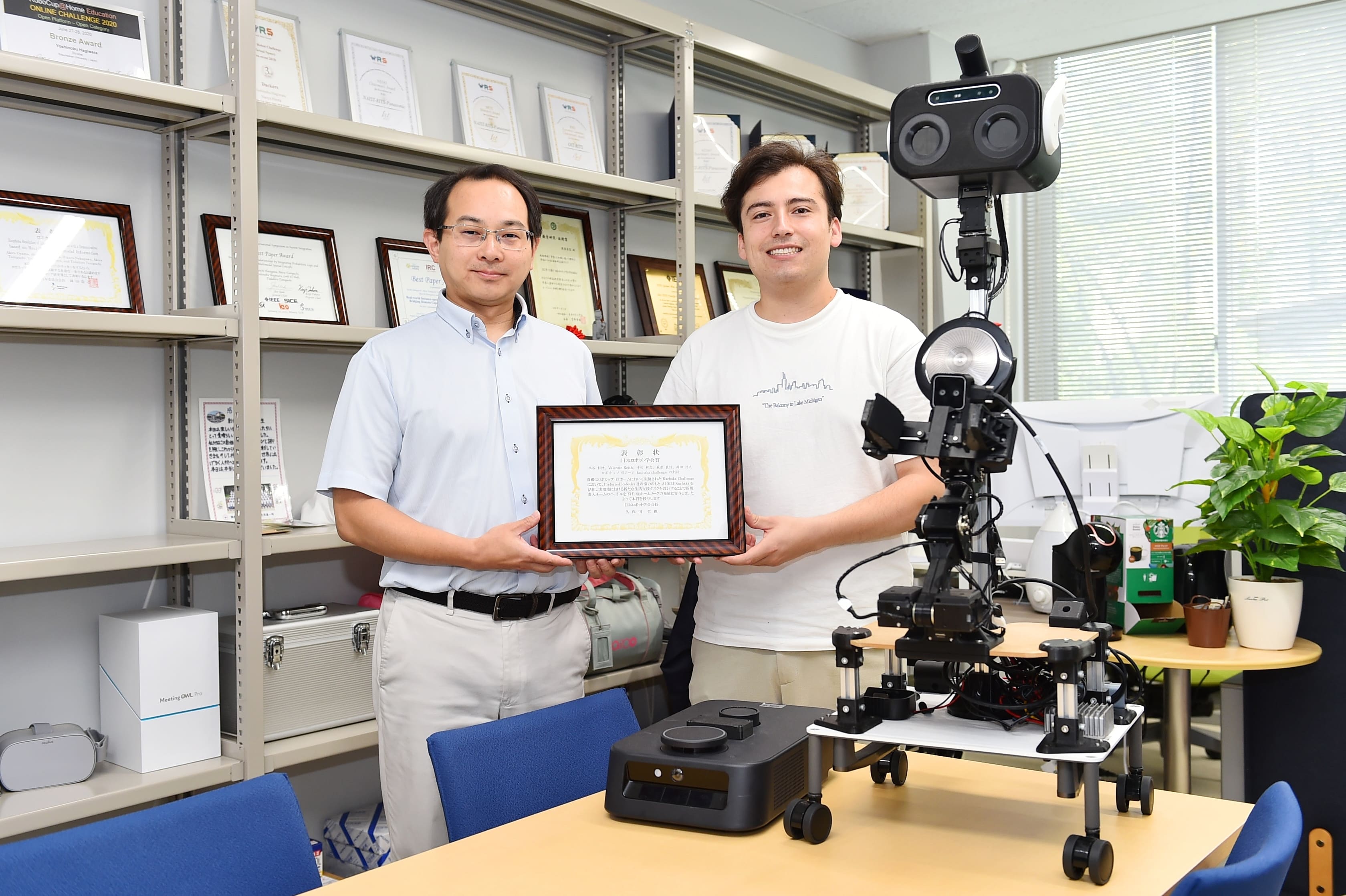
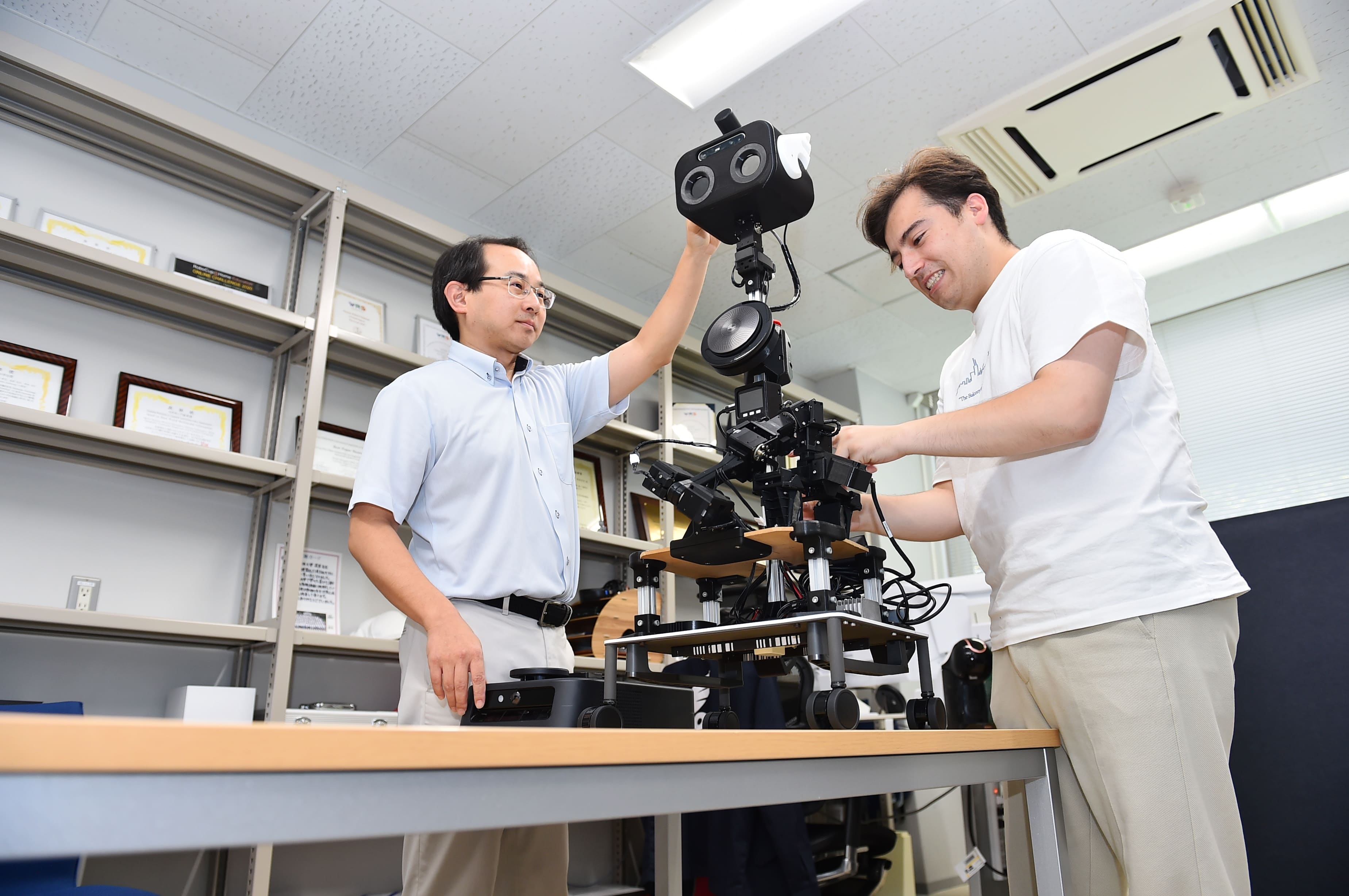
Soka University Graduate School of Science and Engineering Doctoral Students Valentin Keith and Associate Professor Yoshinobu Hagiwara received the Japan Robotics Society Award from the Japan Robotics Society. The reason for the award is for the creation of the new competition "Kachaka Challenge" in the Robo Cup @ Home.
Details of the award are as follows:
・ Award title: "Establishment of the Robo Cup @ Home Kachaka Challenge"
・Winners: Akinobu Mizutani, Valentin Keith, Koshi Terada, Yoshinobu Hagiwara, Hiroyuki Okada
Valentin Keith and Associate Professor Hagiwara designed a new life support task "Kachaka Challenge" using the AI furniture "Kachaka" at the RoboCup Japan Open@Home League held from May 2 to 5, 2025, with the cooperation of Preferred Robotics. This challenge is based on the theme of "Extended Tidy Up" by robots for home use, and is a competition in which multiple objects are efficiently transported and stored using Kachaka and shelves.
In particular, Valentin Keith was a member of SOKA-SPRING, which was selected for the JST "Next Generation Researcher Challenging Research Program (SPRING)" and played a key role in the planning and management of the competition. This initiative, realized through the cooperation of venture companies and universities and research organizations in the field of AI robotics, is a good example of industry-academia collaboration and shows the appearance of convergent doctoral human resources who are expected to play an active role in various career paths in the future.
This award was officially approved at the Board of Directors of the Robotics Society of Japan held in August 2025.
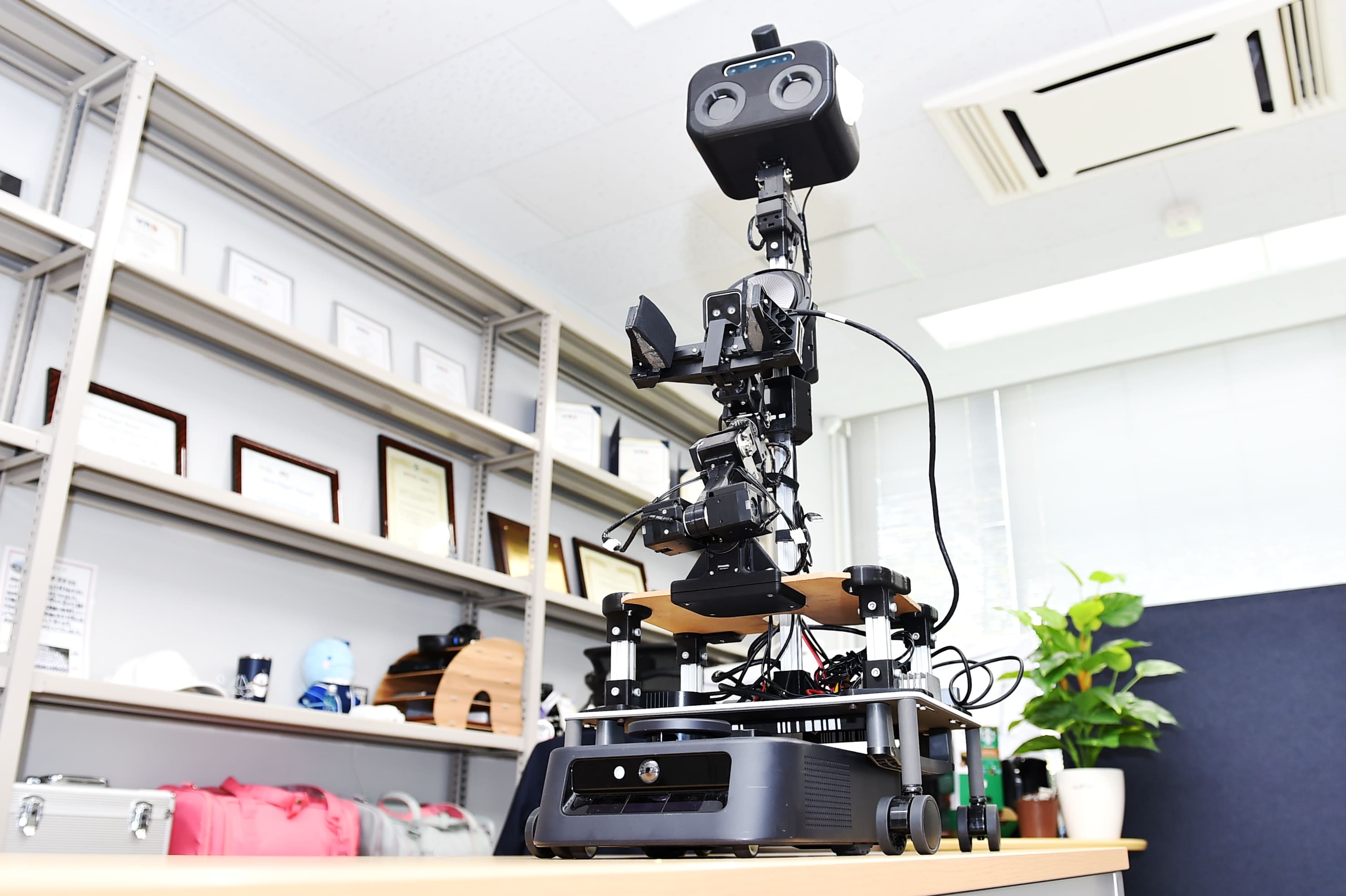
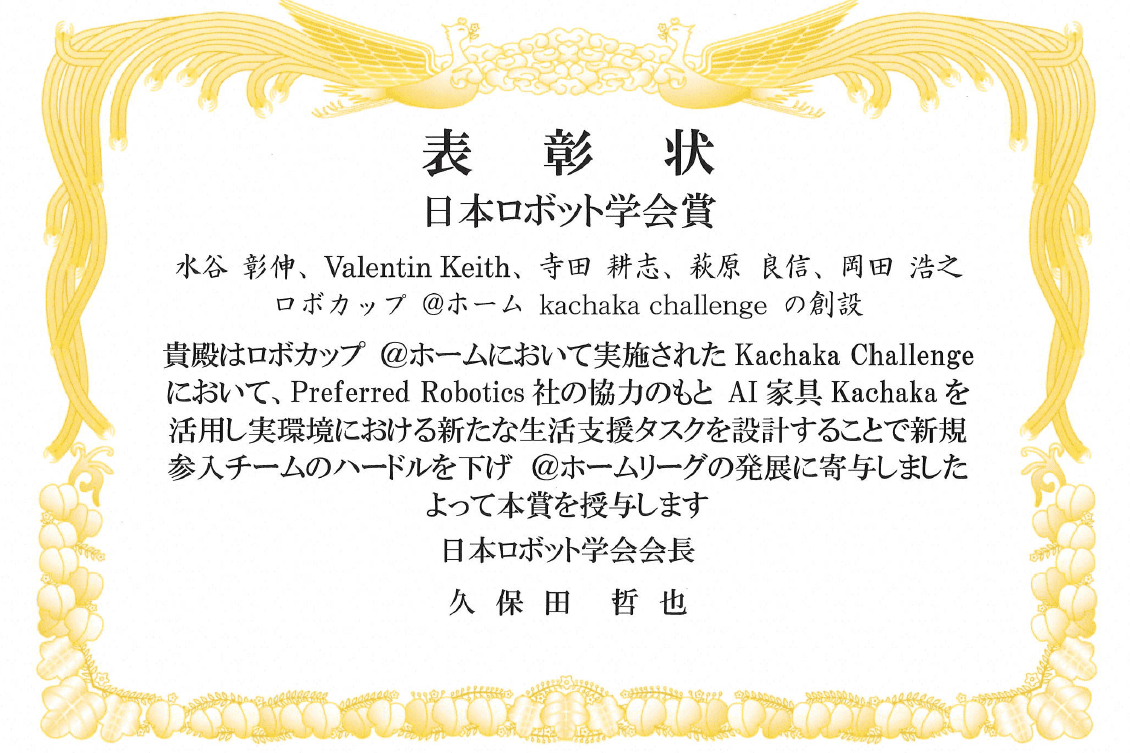
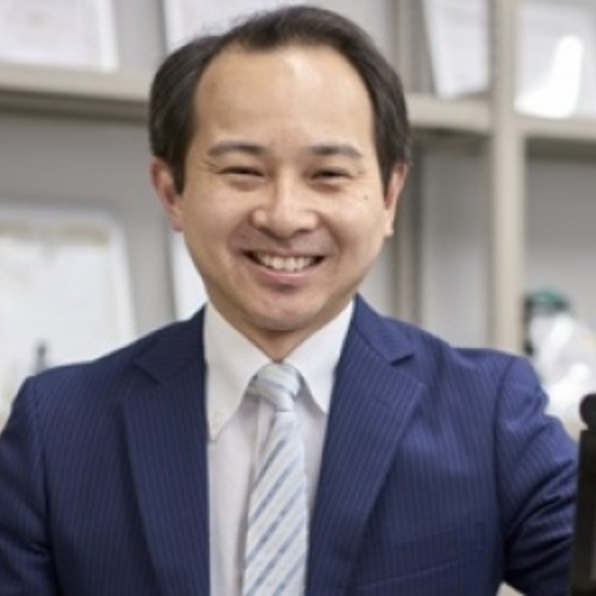
Associate Professor
Yoshinobu Hagiwara
- Specialized Field
Intelligent Robotics, Intelligent Informatics
- Research theme
- Development of computational models for learning, recognition, and prediction of daily life physical support robots
- Development of basic technologies for symbol emergence systems for co-creative learning between humans and robots
